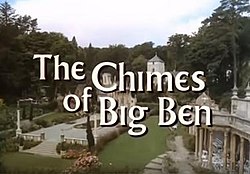Plot summary
Number Six: Where am I?
Number Two: In the Village.
Number Six: What do you want?
Number Two: Information.
Number Six: Whose side are you on?
Number Two: That would be telling. We want information… information… information.
Number Six: You won't get it.
Number Two: By hook or by crook, we will.
Number Six: Who are you?
Number Two: The new Number Two.
Number Six: Who is Number One?
Number Two: You are Number Six.
Number Six: I am not a number! I am a free man!
Number Six meets Number Two
The episode opens with the relentlessly cheerful voice of the radio announcer encouraging every Villager to participate in an upcoming crafts show. Number Six is playing chess near the beach when Number Two (Leo McKern) joins him. During their conversation, a helicopter lands and an unconscious woman (Nadia Gray) is taken out on a stretcher. Later, Number Six is invited to The Green Dome where he and Number Two watch the woman wake up on the main viewing screen. Number Two says that she is the new Number Eight and that she will be Number Six's new neighbour.
When Number Six returns to his cottage, Number Eight emerges, confused, and asks for directions to The Green Dome. When she returns later, she reveals to him that her name is Nadia, but she claims to be suspicious that he is a Village spy. The following day, Nadia tries to escape by swimming out to sea but is brought back by Rover and interrogated in the hospital. In response, Number Six makes a deal, agreeing to participate more in Village life – for instance, by entering the craft show – if this puts an end to her torture.
Number Six and Nadia become closer and eventually plan to escape. She tells him that she knows the location of The Village: On the Baltic coast of Lithuania about 30 miles (48 km) from the Polish border.
At the craft show (where every entry except Number Six's is a depiction of Number Two in some medium), Number Six presents his work, a multi-piece abstract sculpture called "Escape". He is then awarded first prize and uses the "work units" he has won to purchase a tapestry, the entry of one of the other prize winners. At night, he and Nadia escape in his exhibit, which is really a carved boat, using the tapestry as a sail. Rover is suspiciously AWOL.
When they reach land, they meet Nadia's contact. Number Six borrows the contact's watch as his own has stopped. Number Six and Nadia then hide in a packing case as they travel to London. They end up in Number Six's old office and meet his former bosses. When they suspect him of being a double agent, Number Six agrees to tell them why he resigned if Nadia is given protection.
However, as he is about to talk, Number Six hears the familiar chimes of Big Ben. He looks at his watch and finds that it shows the same time – not the one hour time difference if the contact had actually been from Lithuania/Poland. Realising he has been tricked, he begins a search of the office and discovers a tape recorder recreating the background sounds of London. He exits the building, finding himself back in The Village, with Nadia standing with Number Two – revealing she was an operative all along. [1]
This page is based on this
Wikipedia article Text is available under the
CC BY-SA 4.0 license; additional terms may apply.
Images, videos and audio are available under their respective licenses.

